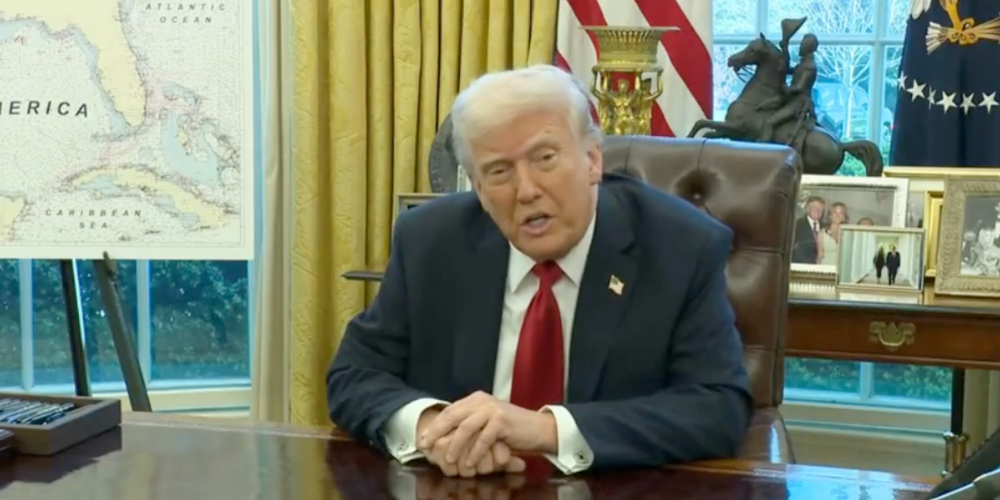President Donald Trump has signed an executive order that would end collective bargaining for administrative workers in the federal government.
In a fact sheet on the order, the Trump White House said that the president “signed an Executive Order using authority granted by the Civil Service Reform Act of 1978 (CSRA) to end collective bargaining with Federal unions” that include the Department of Defense, Department of Veterans Affairs (VA), the National Science Foundation (NSF), and Coast Guard in the federal government’s portfolio of National Defense agencies.
With the portfolio of border security agencies, Trump ended collective bargaining with the Department of Homeland Security (DHS) leadership components, US Citizenship and Immigration Services, US Immigration and Customs Enforcement, the Department of Justice’s (DOJ) Executive Office of Immigration Review, and the Office of Refugee Resettlement within the Department of Health and Human Services.
The White House said that the Service Reform Act of 1978 had allowed for “hostile Federal unions to obstruct agency management,” adding, “This is dangerous in agencies with national security responsibilities.”
There were a number of other agencies that had ability to do collective bargaining removed and around 75 percent of federal workers would not be able to do so, per Politico. Trump used the authority that is granted in the Service Reform Act of 1978 to amend an executive order in 1979 that established the ability to unionize for the federal workers. […]
— Read More: thepostmillennial.com
What Would You Do If Pharmacies Couldn’t Provide You With Crucial Medications or Antibiotics?
The medication supply chain from China and India is more fragile than ever since Covid. The US is not equipped to handle our pharmaceutical needs. We’ve already seen shortages with antibiotics and other medications in recent months and pharmaceutical challenges are becoming more frequent today.
Our partners at Jase Medical offer a simple solution for Americans to be prepared in case things go south. Their “Jase Case” gives Americans emergency antibiotics they can store away while their “Jase Daily” offers a wide array of prescription drugs to treat the ailments most common to Americans.
They do this through a process that embraces medical freedom. Their secure online form allows board-certified physicians to prescribe the needed drugs. They are then delivered directly to the customer from their pharmacy network. The physicians are available to answer treatment related questions.



